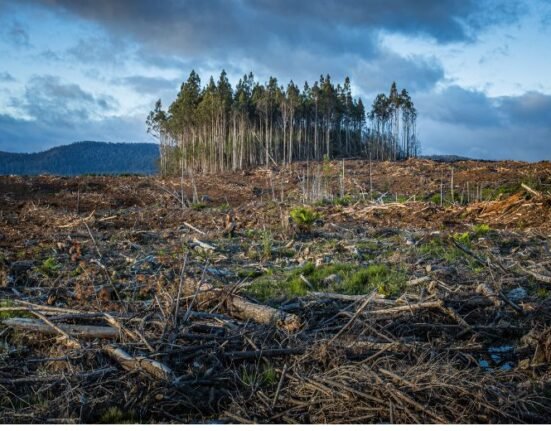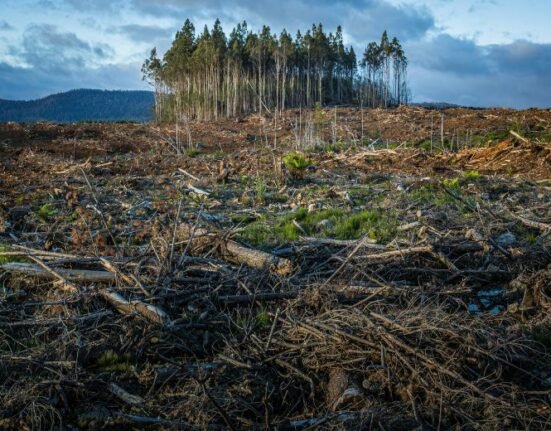HQ Team
May 14, 2024: The world’s top sixty private banks have financed 4,200 fossil fuel companies through lending and underwriting to the tune of $6.9 trillion during the last eight years, a report found.
About half, $3.3 trillion, went toward fossil fuel expansion. In 2023, banks gave $705 billion in fossil fuel financing with $347 billion going to fossil fuel expansion alone.
The report, Banking on Chaos, compiled by various global environmental groups, stated that the funds were behind climate catastrophes, violated Indigenous Rights and had “deadly health impacts.”
“Wall Street’s top concern is its profit,” said co-author April Merleaux, Research and Policy Manager at Rainforest Action Network.
“Our top concerns are the climate and human rights. Banks that profit from climate chaos invent new greenwash every year, but we have the receipts that show how much money they put into fossil fuels.”
Amazon, Artic
The banks’ funds helped degrade the Amazon and Arctic. The worst funder of fossil fuel expansion since the Paris Agreement in 2016 was Citibank, providing $204 billion.
JP Morgan Chase ranked top as a fossil fuel financier in the world, committing $40.8 billion to fossil fuel companies in 2023.
They were also top in funds for fossil fuel expansion in 2023, while Tokyo-based Mizuho shot up to second place in the report in both fossil fuel financing ($37.0 billion) and financing for the expansion of fossil fuels ($18.8 billion).
Recently, some banks increased their exposure to climate risk by rolling back their already weak policies.
Bank of America, which ranks third on the 2023 list of worst fossil fuel funders, is a glaring example — they dropped their exclusions on Arctic drilling, thermal coal, and coal-fired power plants.
‘Climate policy failures’
“They have neither energy ratio disclosures nor near-term absolute emission targets, and they abandoned the Equator principles. At the time of the report’s publication, they are the only bank major exhibiting all of these climate policy failures at once.”
“Every bank in the report was contacted to confirm and given an opportunity to review the deals attributed to them,” according to a separate statement.
The report also revealed high bank financing for the most climate-damaging fossil fuel practices. In 2023, the worst funders of tar sand extraction were CIBC, RBC, Scotiabank, Toronto-Dominion Bank and Mizuho.
The Mitsubishi UFJ Financial Group committed $512 million to companies doing ultra deepwater offshore drilling and JP Morgan Chase financed fracking with six billion dollars.
The top 60 banks by asset size “unabashedly financed the harmful practices to sensitive biomes.”
High temperatures
UniCredit committed $265 million to companies involved in Arctic drilling and Bank of America committed to companies extracting oil & gas in the Amazon biome to the extent of $162 million.
Gerry Arances, co-author and Executive Director at the Center for Energy, Ecology & Development said: “Over the last few months, communities across Southeast Asia suffered dangerously high temperatures. Every cruel dollar that still goes to fossil fuels is a death sentence to our climate-vulnerable peoples.”
The report was authored by Rainforest Action Network, BankTrack, the Center for Energy, Ecology, and Development, Indigenous Environmental Network, Oil Change International, Reclaim Finance, Sierra Club, and Urgewald.
It has been endorsed by 589 organizations in 69 countries.
“I dream of a time when we don’t have to produce this report any more, as we will finally be protecting the planet for the next generation,” said Diogo Silva, Campaign Lead Banks and Climate, BankTrack and a co-author.
“It would mean fossil banks are no more, the fossil fuel era is gone and the just transition to a clean energy economy would now be finally completed. But no: at the same time that fossil pollution is spreading death through record heat, months of rain pouring down in hours, and other once extreme weather events… fossil banks keep banking on climate chaos.”








